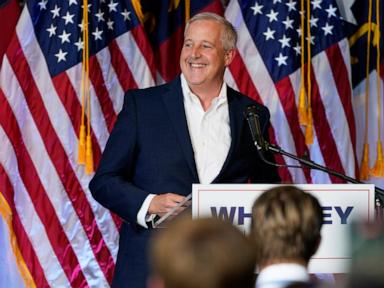The North Carolina Senate race is rapidly crystallizing into a pivotal contest, with both major parties strategically positioning themselves as the champions of the beleaguered middle class economy. This emerging narrative underscores the persistent voter concerns about economic anxieties, transforming the election into a referendum on financial stability and opportunity, defining a key moment in North Carolina Politics.
Former Governor Roy Cooper, a Democrat, has decisively entered the fray, immediately articulating a clear vision focused on alleviating the challenges faced by working families striving to make ends meet. His campaign launch was met with considerable financial momentum, demonstrating a robust initial show of support and setting a formidable fundraising pace that has garnered attention from both allies and adversaries in this crucial US Elections cycle.
Republicans, however, are not ceding the economic high ground, with prominent figures launching their own bids, fiercely asserting their commitment to fulfilling promises for working Americans. They have swiftly moved to paint Cooper as aligned with a more progressive national agenda, aiming to contrast their economic policies with his proposed solutions, intensifying the dynamics of the Senate Race 2026.
Cooper’s initial message, deeply resonating with the worries of everyday people, has sparked a renewed sense of optimism among Democrats across North Carolina and beyond. There’s a palpable belief that this focus on the middle class economy could empower the party to reclaim its historical identity as the primary advocate for working families, potentially securing a crucial Senate seat and influencing subsequent US Elections.
This contest holds significant implications for the broader political landscape, as North Carolina Politics represents a critical opportunity for Democrats seeking to shift the balance of power in Washington. With the Senate Race 2026 largely favoring the party currently out of power, Cooper’s formidable political history and established statewide presence make this race a key battleground for national party strategies.
Campaign tactics are intensifying, with Republican-affiliated groups and candidates swiftly challenging Cooper’s common-sense appeal. Efforts are underway to link him to more liberal national figures and and policies, particularly those unpopular with conservative voters, such as debates over healthcare for minors and cooperation with federal immigration officials, despite Roy Cooper’s long tenure in state office and aversion to federal roles. These are significant voter concerns.
Ultimately, the North Carolina Senate race is poised to be a defining moment in the ongoing national conversation about economic equity and the future of the middle class economy. Both major parties are intently vying for the trust and support of voters, recognizing that the outcome will not only determine a Senate seat in the US Elections but also reflect deeper societal concerns about financial well-being and governmental priorities within North Carolina Politics.






Leave a Reply